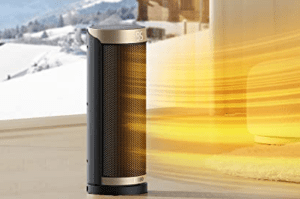As the chilly winter months approach, homeowners are gearing up to keep their homes warm and cozy. And for those with a boiler heating system, ensuring it is properly winterized is crucial. Winterize a boiler heating system helps protect it from potential damage and ensures efficient performance throughout the season.

This blog post will guide you through the essential steps of winterizing a boiler heating system and highlight common mistakes to avoid. So grab a cup of hot cocoa, and let’s dive into how you can keep your home snug and your boiler running smoothly all winter!
Table of Contents
ToggleWinterize a Boiler Heating System: A Step-by-Step Guide
Winterizing a boiler heating system may seem like an additional task on your already long winter to-do list, but trust us, it’s worth the effort. By properly preparing your boiler for the colder months, you can avoid potential problems and ensure optimal performance.
- Preventing Freezing Damage: Winterizing prevents water inside the boiler from freezing, which can lead to cracked pipes and system failure.
- Promoting Energy Efficiency: Insulating and maintaining the boiler improves efficiency, reducing energy bills.
- Extending Lifespan: Proper care and maintenance through winterization reduce wear and tear, prolonging the boiler’s lifespan.
- Ensuring Safety: Winterization includes thorough inspections, reducing the risk of hazards like carbon monoxide leaks.
- Step-by-Step Guide: Explains the process of winterizing a boiler heating system to avoid problems and ensure optimal performance during colder months.
Steps for Winterizing a Boiler Heating System
Inspect and Clean the Boiler
The first step in winterizing your boiler heating system is to inspect and clean the boiler thoroughly. This involves checking for any signs of wear or damage, such as heat exchanger cracks or pipe corrosion. Cleaning should include removing accumulated dirt or debris from the burner assembly, flue passages, and combustion chamber.
Check and Replace Any Damaged Parts
Next, carefully examine all components of your boiler system to identify any damaged parts that need to be replaced. This could include worn-out gaskets, faulty valves, or malfunctioning controls. Addressing these issues before winter sets in is important to ensure optimal performance during cold weather.
Flush the System and Add Antifreeze
To protect your boiler from freezing temperatures, it’s crucial to flush out any remaining water from the system and add an antifreeze solution. Flushing helps remove sediment buildup that can hinder efficiency while adding antifreeze prevents frozen pipes and potential damage.
Protect Exposed Pipes and Vents
Take steps to protect exposed pipes and vents against freezing temperatures. Insulate them using foam pipe sleeves or wrap them with heat tape. Additionally, install draft diverters or vent caps on external vents to prevent snow accumulation.
By following these steps for winterizing your boiler heating system, you’ll ensure its longevity while keeping your home warm throughout those chilly months ahead!
1. Inspect and Clean the Boiler
Inspecting and cleaning your boiler is essential in winterizing your heating system. This process ensures that the boiler runs efficiently and reduces the risk of breakdowns during cold winter.
Start by visually inspecting the exterior of the boiler for any signs of damage or leaks. Check the pressure gauge to ensure it’s within the recommended range. If there are any issues, it’s best to call a professional technician to address them.
Next, please turn off the power supply to the boiler and let it cool down completely before proceeding. Once cooled, remove any dust or debris from around the unit using a soft brush or vacuum cleaner. Pay special attention to vents and air intakes, as they can become clogged over time.
Moving on, carefully open up access panels and clean out any soot or ash accumulation with a brush specifically designed for this purpose. Be cautious not to damage any delicate components while doing so.
Inspect all electrical connections for loose wires or corrosion. Tighten any loose connections and clean off corrosion if present using a wire brush or sandpaper.
By regularly inspecting and cleaning your boiler, you can ensure optimal performance throughout winter while also prolonging its lifespan.
2. Check and Replace Any Damaged Parts
When winterizing your boiler heating system, one important step is to check and replace any damaged parts thoroughly. This ensures that your system is in optimal condition and ready to provide efficient heat during the cold winter months.
Start by inspecting all the components of your boiler, including the burners, valves, pumps, and controls. Look for signs of wear and tear or any visible damage, such as cracks or leaks. If you notice any issues, it’s crucial to address them promptly.
Next, make sure to have a professional technician assess the functionality of key parts like the pressure relief valve and expansion tank. These components play a critical role in maintaining proper pressure levels within your boiler system.
If any parts are found to be faulty or worn out beyond repair, they should be replaced immediately. It’s always better to invest in new parts rather than risking potential breakdowns or inefficiencies during the winter season.
By checking and replacing damaged parts before winter arrives, you can ensure that your boiler heating system operates smoothly and efficiently when you need it most. Don’t overlook this crucial step in properly winterizing your home’s heating source!
3. Flush the System and Add Antifreeze
To ensure your boiler heating system is ready for the winter months, it’s crucial to flush the system and add antifreeze. This step helps prevent any potential damage caused by freezing temperatures.
Begin by turning off the power supply to the boiler. Once that’s done, locate the drain valve on your boiler and attach a hose to it. Place a bucket or container underneath to collect any water from flushing.
Open all bleed valves on radiators in your home, starting from the top floor downwards. This will help release any trapped air in the system.
Next, open up the drain valve on your boiler and let all of its water drain out completely. Be sure to follow manufacturer instructions for this process, as each boiler may have specific requirements.
Once drained, close all bleed valves and remove the hose from the drain valve. Now it’s time to add an appropriate amount of antifreeze into your system following manufacturer guidelines.
Adding antifreeze will protect against freezing temperatures while also helping prevent corrosion within your pipes and radiators.
By properly flushing your system and adding antifreeze, you are taking proactive steps toward maintaining a reliable and efficient heating system throughout winter!
4. Protect Exposed Pipes and Vents
One crucial step in winterizing a boiler heating system is to protect exposed pipes and vents from freezing temperatures. The extreme cold can cause these components to crack or burst, leading to costly repairs. So, it’s important to take preventive measures.
Start by insulating the pipes with foam sleeves or heat tape. These products help retain heat and prevent freezing. Ensure all joints are securely sealed, as any gaps can allow cold air to seep in.
Next, pay attention to the vents on your boiler system. These openings need protection too! Install vent covers that are designed for winter use. These covers will prevent snow and ice from blocking the vents, which could disrupt proper ventilation.
Additionally, clear any debris or obstructions around outdoor vents such as leaves or branches. This ensures optimal airflow and prevents potential issues down the line.
By protecting exposed pipes and vents, you’ll safeguard your boiler heating system from damage caused by freezing temperatures during the winter months!
Common Mistakes to Avoid When Winterizing a Boiler Heating System
Winterizing your boiler heating system is crucial to ensure optimal performance during the cold months. However, homeowners often make some common mistakes when preparing their boilers for winter. By avoiding these errors, you can prevent costly repairs and keep your home warm and cozy throughout the season.
- Neglecting Inspection and Cleaning: Failure to clean debris and sediment buildup can reduce efficiency.
- Not Checking or Replacing Damaged Parts: Faulty components can lead to reduced heat output or system breakdown.
- Skipping Flushing with Antifreeze: Helps remove impurities and prevents water freezing in pipes during low temperatures.
- Not Protecting Exposed Pipes and Vents: Insulating pipes prevent freezing and bursting in extreme cold.
- Lack of Regular Maintenance: Regular maintenance helps identify and address potential issues before they become major problems.
Tips for Maintaining
In addition to winterizing your boiler heating system, it’s important to maintain it throughout the colder months. Here are some tips to help you keep your system running smoothly:
1. Regularly check and clean the filters:
Over time, dirt and debris can accumulate in the filters of your boiler. This can restrict airflow and reduce efficiency. Make sure to clean or replace the filters as recommended by the manufacturer.
2. Monitor water pressure:
Low water pressure can cause problems with your boiler’s functionality, so it’s crucial to monitor it regularly. If you notice a significant pressure drop, consult a technician to identify and fix any potential issues.
3. Schedule annual maintenance:
It’s always a good idea to have a professional technician inspect and service your boiler once a year. They will be able to detect any potential problems early on and ensure that everything is working properly.
4. Keep vents clear:
Make sure that all vents connected to your boiler heating system are free from obstructions such as furniture or other objects. Blocked vents can disrupt proper air circulation, leading to inefficient heating.
5. Be mindful of unusual noises or odors:
If you notice any strange noises coming from your boiler or detect unusual odors like gas or burning smells, contact a qualified technician immediately, as this could indicate a serious issue.
By following these maintenance tips, you can extend the lifespan of your boiler heating system while ensuring optimal performance during those cold winter months.
Remember, taking proactive measures now will save you both time and money down the line! So don’t wait until freezing temperatures hit – take action today by winterizing and maintaining your boiler heating system for peace of mind all season long!
So there you have it – everything you need to know about how homeowners can winterize their boilers! By understanding its importance, following the necessary steps, avoiding common mistakes, reaping the benefits of proper winterization techniques, and maintaining your system regularly, you can ensure a cozy and comfortable winter without










